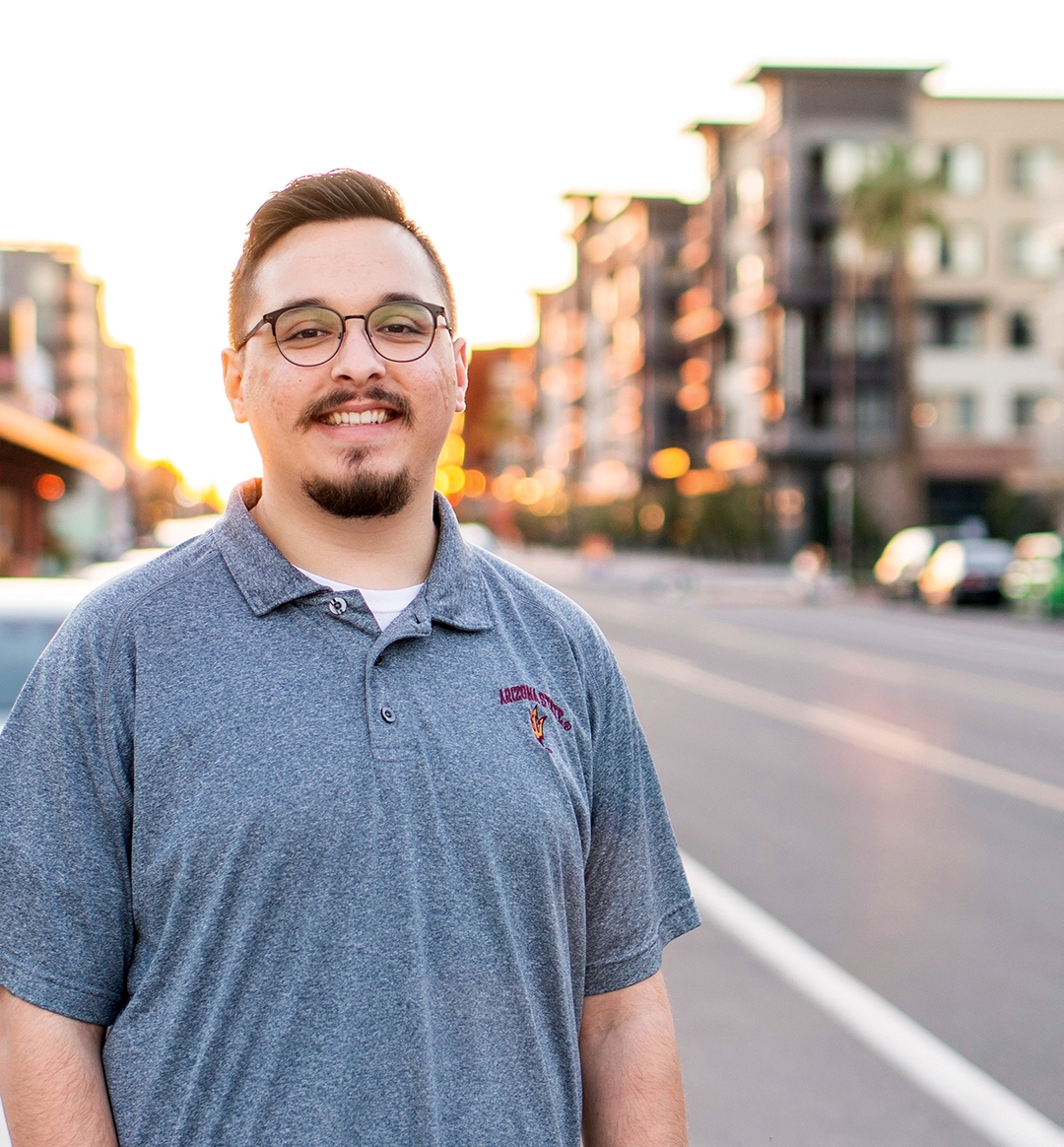BIAAZ Internship Influences Career Of Health Policy Expert
Why does someone choose to become a health policy analyst? For Zeke Dominguez, it’s two-fold: He gets to help those who need it and raise the public’s perception of social work as a profession. Suffice it to say, he is doing both.
The 24-year-old Phoenix native credits the Brain Injury Alliance of Arizona (BIAAZ) with giving him a new perspective of the field. “I originally wanted to be a psychotherapist. But as an intern with the Brain Injury Alliance, the more l saw how they tackled more macro issues, the more I wanted to help broaden awareness of the benefits of social work.”
Completing the circle (or starting the new journey), this spring, Zeke is scheduled to receive his MSW from Arizona State University, where he also received his BA. What makes this even more noteworthy is the fact that he is the first person in his family to go to college.
“I’m very fortunate my family encouraged my career, even when it wasn’t so clear,” says Zeke proudly. “When I enrolled at Paradise Valley JC, I didn’t know what I wanted to do, but my mom told me about social work.” For the record, Zeke’s “mom” is technically his grandmother, who, along with his grandfather, raised him from a very young age.
“I had to write an entry essay. Looking inside I surprised myself and realized I wanted to help other people, which is the foundation of social work. I also wanted to tackle oppression and racism.
“Then, as an intern with Carrie at the Brain Injury Alliance, I started learning about community organization, especially with issues dealing with the Affordable Care Act. It was eye-opening.”
Carrie is BIAAZ Executive Director Carrie Collins-Fadell, who has nothing but praise for him. “Zeke always wanted to know more. He quickly grasped the importance of recognizing brain injuries, but he was even more intrigued with policy. I’m so proud of his wanting him to make a difference in the field.”
Zeke proceeded to become an integral member of ASU’s Sex Trafficking Intervention Research, exploring the relationship between both traumatic and non-traumatic brain injury and sex trafficking. In this capacity, he has worked closely with Director Dr. Dominique Roe-Sepowitz. Beginning as a graduate research assistant, he has become the organization’s Director of Policy Analysis. His strives to improve current policies geared toward victims.
“Unfortunately, survivors of sex trafficking are often locked out of compensation. This is especially true in rural areas, because it isn’t always easy to identify those engaged in trafficking.”
He is quick to add Arizona is advanced in this battle to treat these people, tailoring training to professionals in the field. The state is also making headway training correctional officers.
“It’s bittersweet being in this field,” explains Zeke. “It’s sad that this problem exists, but I like being a pioneer helping find solutions.”
Painting a bigger picture, Zeke adds, “As a society, we have to challenge how we perceive Social Work as a profession. Many of us do different types of work; regardless of which area we’re in, it needs to be seen as a valued profession.”
Zeke Dominguez is doing his part every day.
ABOUT BRAIN INJURY ALLIANCE OF ARIZONA
The Brain Injury Alliance of Arizona (BIAAZ) is the only statewide nonprofit organization dedicated to improving the lives of adults and children with all types of brain injuries through prevention, advocacy, awareness, and education. BIAAZ also houses the Arizona Brain Health Resource Center, a collection of educational information and neuro-specific resources for brain injury survivors, caregivers, family members, and professionals.
What began in 1983 as a grassroots effort has grown into a strong statewide presence, providing valuable life-long resources and community support for individuals with all types of brain trauma at no charge.
The Brain Injury Alliance of Arizona:
- Works with the Congressional Brain Injury Task Force
- Houses Arizona Brain Health Resource Center
- Hosts the Statewide Opioid Use Disorder & Cognitive Impairment Workgroup
- Deploys a Statewide Opioid Use Disorder & Cognitive Impairment Response Team with peer support, training and family wraparound services
- Facilitates the Brain Health Advisory Council
- Manages a Statewide Neuro Info-Line 888-500-9165






